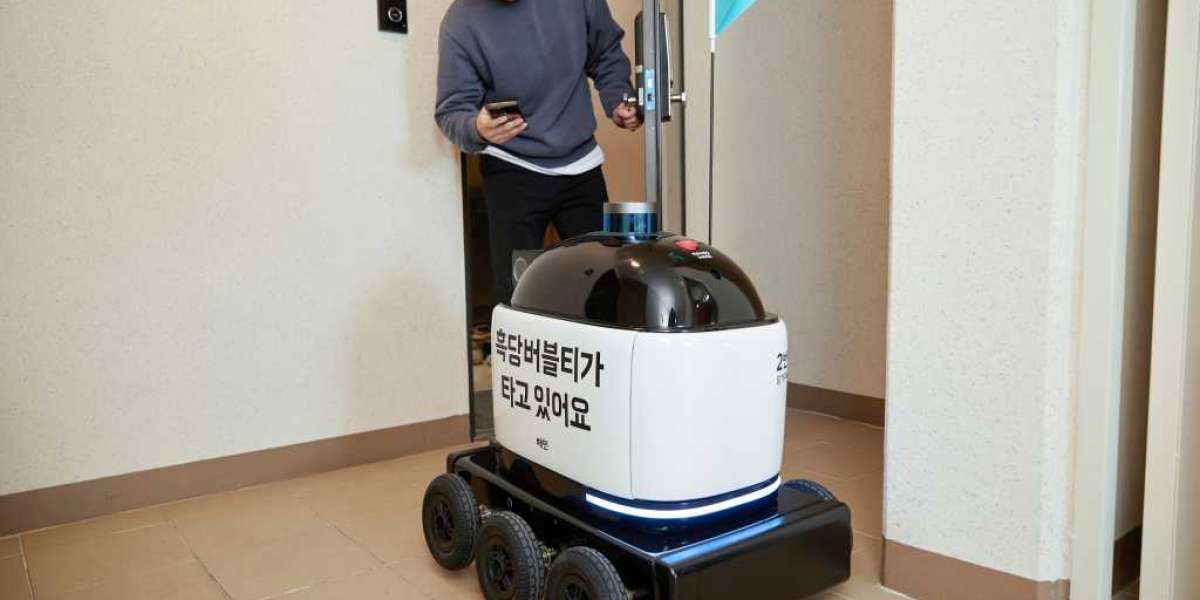Baedol Minjok, better known as Baemin, has begun mobilizing robots for a door-to-door meal delivery service, according to South Korea's top food delivery app.
According to app operator Woowa Brothers, Baemin's autonomous driving robot, dubbed "Delidrive," is the first of its type in the world.
The robot delivery service is now only offered at the Alleyway Gwanggyo apartment complex near Suwon, Gyeonggi Province. Delidrive, according to the firm, can easily navigate the apartment complex and deliver meals to people's doors without assistance.
Baemin has been operating a similar robot food delivery service since August of last year, prior to the formal debut of Delidrive. Customers had to leave their homes to collect their meals because the robot delivery service used to pick up food from restaurants and transport it to the first level of the apartment complex.
The business linked QR codes to 1,000 apartments in the complex, allowing the delivery robot to detect which door it should drive toward and follow a predetermined route.
Baemin's Delidrive is also linked to the apartment's access system and elevator, allowing it to open the first-floor front door and board the elevator. When the robot arrives at the door, it calls the consumer and sends an alert via the app.
Since the beginning of November, the organization has tested over 200 delivery scenarios in around a month. After the order was placed, it took an average of 20 minutes to complete the delivery. So far, Delidrive has not been involved in any accidents or collided with people, according to Baemin.
"Robot delivery services may be employed for ultra-short-distance delivery or residential and commercial difficult delivery that delivery people shun, producing new order needs for small-business owners," Kim Yo-seob, head of Woowa Brothers' robot business team, explained.
"We will continue to develop technology and enhance service quality in order to expand the door-to-door robot delivery service to additional apartment complexes and office buildings."
Meanwhile, a new study found a link between the use of robots in the workplace and the need for human labor.
"We find a strong negative relationship between exposure to robots and changes in labor demand for the manufacturing sector and routine occupations, but no statistically significant effect on labor demand for service sectors and non-routine occupations," said Kim Hye-jin, a researcher at the Bank of Korea's Economic Research Institute.
As related technologies advance, more robots will take the place of human beings in manufacturing and basic tasks, according to the study.
Although the changes brought about by the introduction of robots into the workplace are unavoidable, Kim believes that greater education and training are required to mitigate the negative impacts of humans losing their employment.
According to a study, South Korea has the world's second-highest robot density in 2019 with 774 industrial robots per 10,000 workers.



